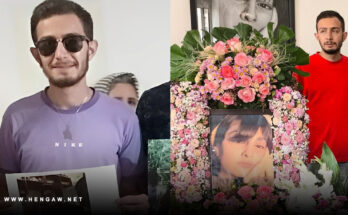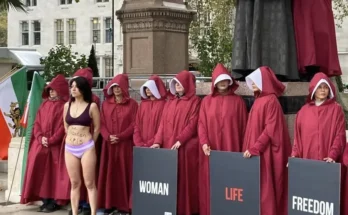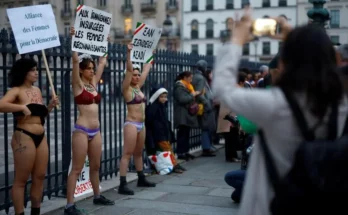Source: RFE/RL’s RadioFarda

Eleven women’s rights activists cumulatively sentenced to more than 60 years in prison have lost their appeal, a lawyer for one of the campaigners said on May 29.
Ramin Safarnia said an appeals court in the northern city of Rasht on May 28 had upheld the preliminary verdicts handed to each activist. He vowed to take the case to the Supreme Court.
In a post on Instagram, activist collective Bidarzani accused the judge, Mohammad Sadeq Iran-Aqideh, of issuing the ruling “without holding a court session.”
Based in the northern province of Gilan, all 11 activists were detained in August 2023 on various security-related charges, including “assembly and collusion to disrupt national security,” “propaganda against the establishment,” and “membership in an illegal group.”
Speaking to RFE/RL’s Radio Farda, a source close to the activists said the Islamic republic had increased the pressure on independent women’s rights groups in the wake of the Women, Life, Freedom movement.
The movement was born out of the nationwide antiestablishment protests in 2022 following the death in police custody of Mahsa Amini, a young woman who had been detained for allegedly flouting Iran’s strict dress code for women. More than 500 protesters were killed and thousands arrested during the months of unrest.
“They try to suppress [the groups] as much as they can, and they have had some success, but the resistance continues,” the source said, speaking on condition of anonymity.
Zohreh Dadras was sentenced to more than nine years in prison on two separate charges.
Forugh Sami’nia, Sara Jahani, Yasamin Hashdari, Shiva Shahsiah, Negin Rezai, Matin Yazdan, Azadeh Chavoshian, and Zahra Dadras were each handed a total of six years and three months in prison on two separate charges.
Jelveh Javaheri and Human Taheri each received a one-year sentence.
A source previously claimed to Radio Farda that the some of the activists had been “beaten and put under pressure during interrogation.”
Javaid Rehman, the UN special rapporteur on the situation of human rights in Iran, concluded in his report in March that the actions of the Iranian authorities since the 2022 protests pointed to “the possible commission of international crimes, notably the crimes against humanity of murder, imprisonment, enforced disappearances, torture, rape and sexual violence, and persecution.”
Written by Ardeshir Tayebi based on an original story in Persian by RFE/RL’s Radio Farda




